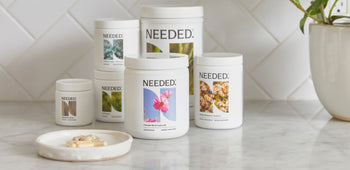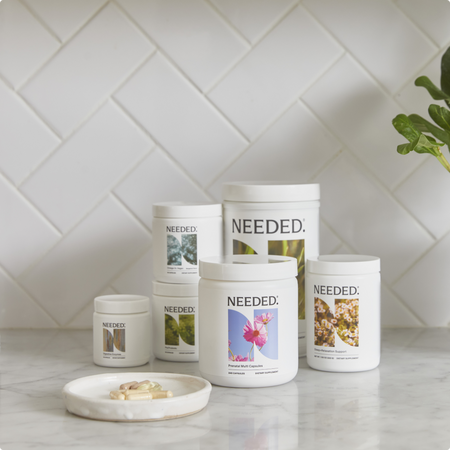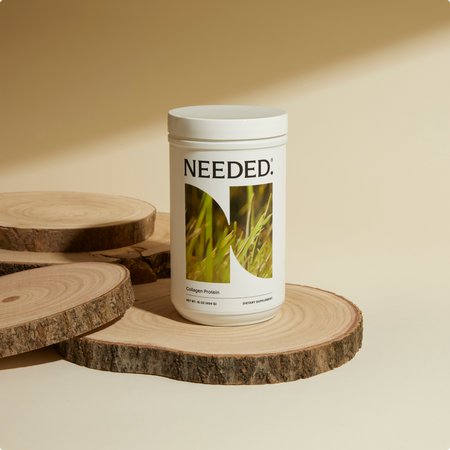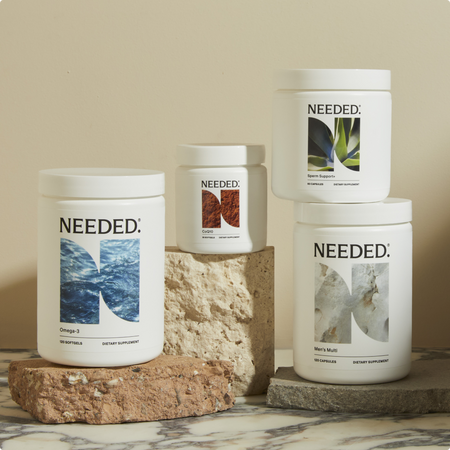Can a Riboflavin Deficiency Affect Your Baby?
Can a riboflavin deficiency affect your baby? Riboflavin deficiency in babies can lead to growth, skin and eye health issues. Because many newborns rely on mom for nutrients, your levels during pregnancy and breastfeeding matter more than ever.
What is riboflavin, and Why is it Important for Pregnancy?
What is riboflavin in pregnancy? Great question. Although not as well known as other B vitamins, riboflavin, or vitamin B2, is a water-soluble nutrient that helps your body turn food into energy. It also supports your immune system and keeps your skin and hair healthy.
Without enough riboflavin, your body struggles to break down nutrients properly, which can affect everything from energy levels to growth and development. Additionally, during pregnancy, it supports your baby’s growth and development, particularly muscle and nerve development.
Riboflavin Deficiency Symptoms in Pregnant Women & Babies
Riboflavin does more than support cellular energy production; it plays a big role in your overall health. It helps your body make red blood cells and supports healthy skin, hair, and eyes. A deficiency can appear in a few ways for both mother and baby.
Symptoms in Pregnant Women
A vitamin B2 deficiency can have a range of symptoms in women, including:
- Fatigue
- Eye issues like glaucoma or keratoconus (a condition that can cause blurry, distorted vision)
- Swelling in the mouth or throat
- Swollen or cracked lips
- Skin problems
Symptoms in Babies
In newborns and infants, a vitamin B2 deficiency can have the following signs and symptoms:
- Low birth weight or stunted growth
- Dry or swollen tongue
- Itchy and irritated skin, especially around the face, ears and scalp
- Eye problems such as light sensitivity and glaucoma
Who Is at Risk for a Riboflavin Deficiency?
Thanks to fortified foods and the broader availability of meat and dairy, vitamin B2 deficiencies aren’t as widespread in the U.S. today as in the past. However, a few groups are at an increased risk of developing a deficiency.
-
Pregnant and breastfeeding women and their babies: If you are pregnant and do not consume much meat or dairy products, you may be at an increased risk of a riboflavin deficiency.
-
Vegans: Meat and dairy products are two substantial sources of riboflavin, so if you do not consume enough of either, you may be at an increased risk of developing a riboflavin deficiency.
- People with lactose intolerance: Similarly to vegans, if you cannot consume dairy products, you may be at an increased risk of developing a riboflavin deficiency.
How Much Riboflavin do Pregnant Women Need and Where to Get it
Pregnant women need 1.4mg, and breastfeeding women need 1.6mg of riboflavin daily. That is between 40-50% more than non-pregnant women over the age of 18, who only need 1.0mg. If you have a deficiency or want to ensure you meet the daily recommended amount, you can find riboflavin in dairy, meat, cereals and even some nuts. Getting enough of the nutrient can be challenging if you have dietary restrictions so that you may need a supplement.
Foods High in Vitamin B2
Dairy, meat, and fortified cereal have the highest amount of riboflavin per serving, so you can start there when trying to incorporate this vital nutrient into your daily diet. Good sources of vitamin B2 include:
- 3oz beef tenderloin steak (0.4mg)
- Fortified breakfast cereal (1.3mg)
- 1 cup of 2% milk (0.5mg)
- 3oz Swiss cheese (0.3mg)
- 1 large egg (0.2mg)
You can also get riboflavin from non-meat and dairy products such as almonds (0.2mg), fruit like apples (0.1mg), and kidney beans (0.1mg). However, as you can see by the amount per serving, getting adequate riboflavin without meat or dairy can be challenging, so you may need to add a supplement to your daily routine.
Taking a Riboflavin Supplement
A rich and varied diet is always the best way to ensure you get adequate nourishment. But we know that pregnancy and postpartum are nutritionally demanding, and many women need a prenatal supplement to fill in the gaps. Consider adding a high-quality prenatal supplement that meets (or exceeds) your riboflavin RDA.
The bottom line is that getting enough riboflavin is essential for feeling your best and supporting your baby’s development. Most prenatals just scratch the surface, leaving women depleted during one of the most demanding times of their lives. Needed’s latest IRB-approved study found that women taking the Needed Multi Prenatals had significantly higher blood levels of multiple key nutrients for pregnancy, including Riboflavin, compared to women taking standard prenatal vitamins. Click here to learn more about the study, see the full findings, and learn how you can truly support your body through every stage of motherhood.*
*Based on our Prenatal Nutrient Status Study, an observational cross-sectional decentralized clinical research study which compared nutritional biomarkers among 235 pregnant women in the U.S., according to the type of prenatal vitamin used in the current pregnancy.
Frequently Asked Questions
What are some riboflavin benefits?
Riboflavin helps convert food into energy, supports heart and eye health, and helps maintain healthy skin and nails. During pregnancy, riboflavin supports your baby’s growth and eye health.
Is riboflavin safe to take during pregnancy?
Yes, it is safe to take riboflavin or Vitamin B2 during and after pregnancy, and several prenatal supplements include the nutrient.
Can you take too much riboflavin?
Because adverse effects from high riboflavin intake from foods or supplements (400 mg/day for at least 3 months) have not been reported, the Food and Nutrition Board (FNB) has not established upper intake limits for riboflavin. However, always exercise caution and speak with your healthcare provider before adding any new medication or supplement to your daily routine.
What are the best sources of riboflavin for vegetarians and vegans?
Vegetarians and vegans may find it challenging to meet the RDA for riboflavin. Luckily, two of the best sources of vitamin B2 are vegetarian and vegan-safe, depending on the brand. One serving of fortified cereal has 1.3mg of riboflavin, and one serving of oats has 1.1mg.
Vegetarians who still consume dairy products can add milk, eggs and yogurt to their diet, all of which have between 0.2mg and 0.5mg per serving. Vegans can also add almonds, spinach, mushrooms, and quinoa to their daily diet. You can also consider adding a daily prenatal supplement that contains riboflavin.
















